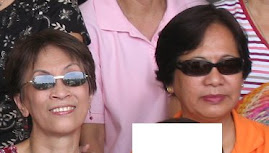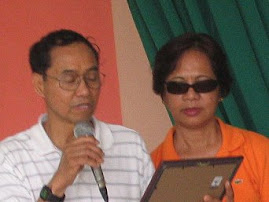- NOTE: (The first and last time that we witnessed a total solar eclipse was when we were still in the third grade. I remember the people falling into their knees and praying " iluwa nyo po ang araw." amidst the cockling of the roosters. We had basins with water, from where we watched the spectacle's reflection. We also had pieces of glass covered with soot, which we used to protect our eyes while watching the sun and moon's movement directly in the sky.
The coming solar eclipse on the 22nd of this month (albeit partial) shouldn't be missed since it is not a daily scientific event. What a golden opportunity to educate our grandchildren on what an eclipse is, how it happens, etc. ) - (above note by jogjmac)
ABS-CBN - Friday, July 10
Philippines to witness solar eclipse on July 22
MANILA - The Philippines will witness a partial solar eclipse on July 22, the Philippine Atmospheric, Geophysical and Astronomical Services Administration (PAGASA) said Thursday. The state weather bureau said the path of the moon's umbral shadow will begin in India and is expected to cross Nepal, Bangladesh, Bhutan, Myanmar, Central China, the Pacific Ocean, Ryukyu Island, Marshal Island and Kiribati. It said a partial eclipse will be witnessed in several parts of the Philippines including Metro Manila, Calayan Island, Laoag City, Tuguegarao City, Baguio City, Angeles City in Pampanga, Puerto Princesa in Palawan, Lucena City, Naga City, Iloilo, Cebu, Zamboanga, Sulu, Davao and General Santos City. PAGASA said the eclipse will start in Metro Manila at exactly 8:33:01 a.m. The eclipse's full visibility will be seen at 9:43 a.m. and will end at 11:01:51 a.m. Other areas in the globe that will witness partial solar eclipse are those in eastern Asia and the Pacific Ocean. The weather bureau, meanwhile, cautioned spectators to avoid directly looking at the eclipse without safety eye devices. It said people can cover their eyes with X-ray films, sun glasses, smoked glass and photographic films and negatives. It said the safest method to view the eclipse is by indirect viewing "like projecting the image with a pinhole camera."



















1 comment:
Moments like this shouldn't be missed by doting parents or grandparents to interact with their kids with respect to the wonders of science!
Take pictures and share, please!!!
Post a Comment